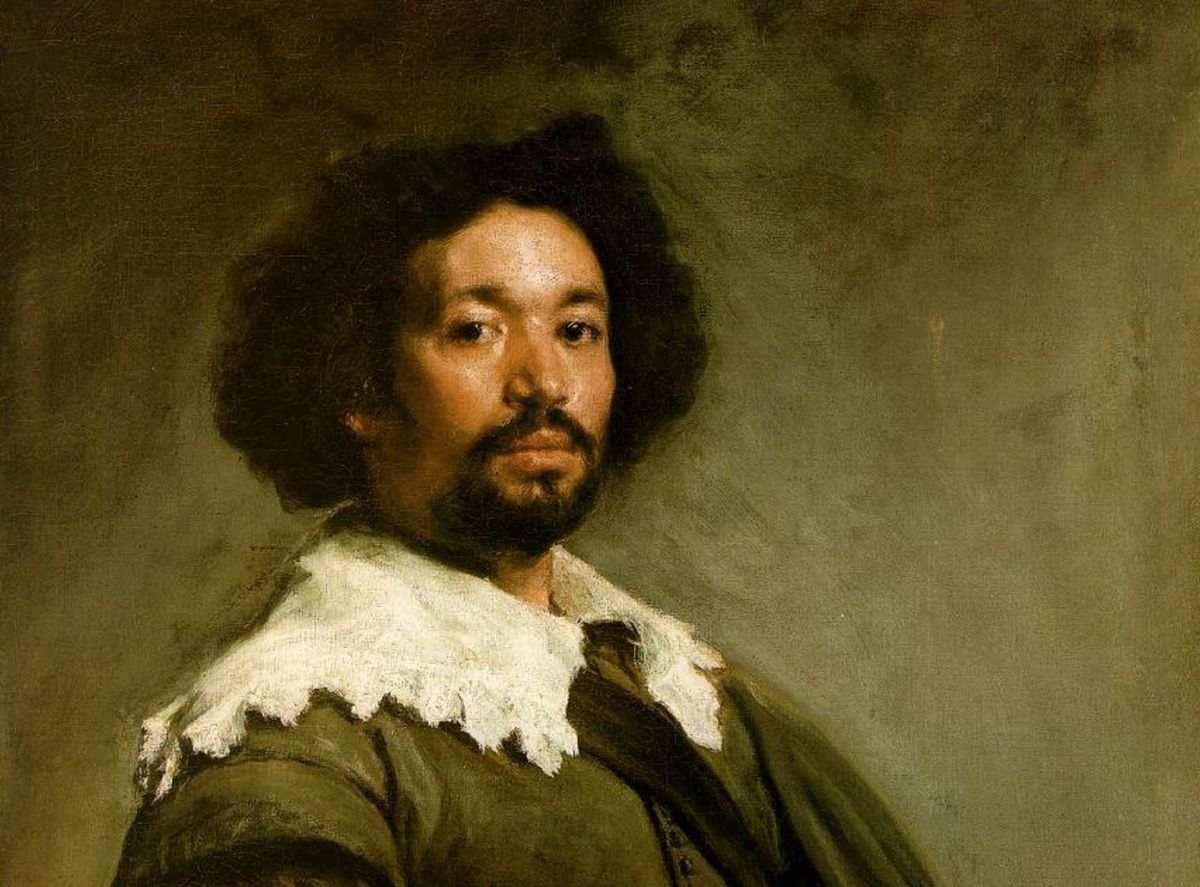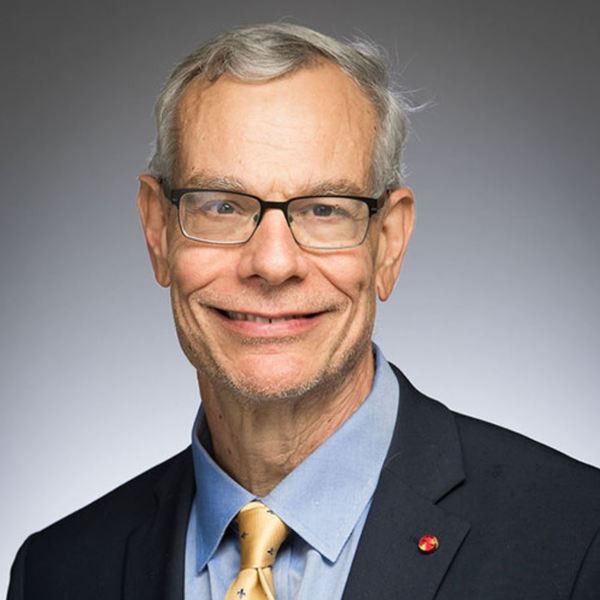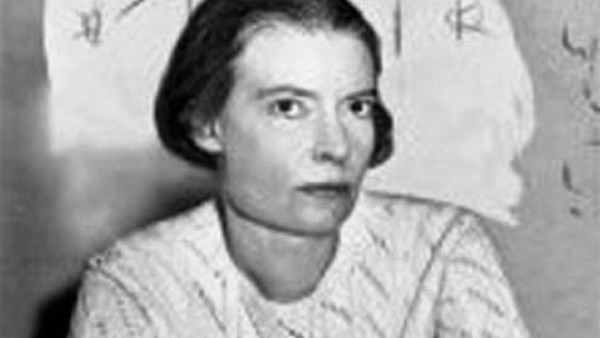Do “Black Lives Matter?” Do they matter as much as other lives? “Is Black Beautiful?” Do we even see it?[1] Any thoughtful person would hopefully answer these questions readily with a “Yes.” Yet the questions are also often unsettling because they force us to think about the possible ways of answering “No,” ways that might reside within our own hearts. Often these “Nos” are unseen or unacknowledged, and therefore all the more troubling, and all the more troublesome.
Is there a theological paradigm that would allow us to put both the Yes and the No into perspective, and to chart a way forward? The answer to this, at least, must be “Yes.” The concept of the Preferential Option for the Poor surely has a foremost claim on our attention in this matter. What is the Preferential Option for the Poor? Here is Pope Francis’s characterization of it: “God’s heart has a special place for the poor, so much so that he himself became poor” (2 Cor 8:9; Evangelii Gaudium §197). Pope Francis goes on to note how the “entire history of our redemption” is marked by this preference and thus “by the presence of the poor.” In his words,
Salvation came to us from the “yes” uttered by a lowly maiden from a small town on the fringes of a great empire. The Savior was born in a manger, in the midst of animals, like children of poor families; he was presented at the Temple along with two turtledoves, the offering made by those who could not afford a lamb (cf. Luke 2:24; Lev 5:7); he was raised in a home of ordinary workers and worked with his own hands to earn his bread.
He continues:
When he began to preach the Kingdom, crowds of the dispossessed followed him, illustrating his words: The Spirit of the Lord is upon me, because he has anointed me to preach good news to the poor (Lk 4:18). He assured those burdened by sorrow and crushed by poverty that God has a special place for them in his heart: Blessed are you poor, yours is the kingdom of God (Lk 6:20); he made himself one of them: I was hungry and you gave me food to eat, and he taught them that mercy towards all of these is the key to heaven (cf. Matt 25:5ff).
Pope Francis goes on to point out that:
For the Church, the option for the poor is primarily a theological category rather than a cultural, sociological, political or philosophical one. God shows the poor “his first mercy.” This divine preference has consequences for the faith life of all Christians, since we are called to have this mind . . . which was in Jesus Christ (Phil 2:5). Inspired by this, the Church has made an option for the poor which is understood as a “special form of primacy in the exercise of Christian charity, to which the whole tradition of the Church bears witness.” This option—as Benedict XVI has taught—“is implicit in our Christian faith in a God who became poor for us, so as to enrich us with his poverty’” (§198).
Thus, the preferential option for the poor is a category derived from revelation, not, in the first instance, a category of unaided scientific reason. It is not a doctrine that can come from the secular disciplines, not even philosophy. We can go on to observe that the “poor” are not only those who suffer financial hardship, though this is most often a primary characteristic. But the category is wider. Here is what Gustavo Gutierrez, the Notre Dame John Cardinal O’Hara Chair in Catholic Theology emeritus, has to say about it:
What does being poor mean? I believe that a good definition does not exist, but we can approximate it if we say the poor are the non-persons, the insignificant ones, the ones that don’t count either for the rest of society or—far too frequently—for the Christian churches. For example, the poor are the ones who have to wait for a week at the door of the hospital to see the physician, the poor are the ones who have no social or economic relevance, the ones disowned by means of unfair laws; the poor are the ones who have no possibility to speak to change their predicament; the poor are the ones who constitute a despised and culturally marginalized race. At best the poor are present in statistics, but they do not appear in society with proper names. We do not know the names of the poor. They are and remain anonymous (“Renewing the Option for the Poor,” in Liberation Theologies, Postmodernity and the Americas, 71).
In other words, the poor are those whose lives Do Not Matter, or, Do Not Matter Much. They are neither beautiful nor not beautiful, but mostly faceless, relatively invisible because they are forgettable. Perhaps a photo in a solicitation for a charitable cause catches the imagination for a few moments. But mostly one does not stop to ponder the beauty of that which is already forgotten. The poor are those on the mental backburner. One gets to them—or not.
The relevance to the question of racism is obvious. It is true that not only Black Lives, but All Lives, Matter. But to respond to the question, “Do Black Lives Matter?” by saying “All Lives Matter” is, from the perspective of the preferential option for the poor, to say something true in a way that tends to subvert that very truth. It is to forget that, in reality, some lives do not seem, anyway, to matter as much. The preferential option for the poor requires us to stop and notice that. The poor are more likely to die an early and unjust death, not because no one cares, but because no one cares enough to see that it does not happen or because not enough people care enough.
The preferential option for the poor asks us first to notice the way in which some lives do not, in fact, but only in theory, matter. It means, then, that for us to answer the question “Do Black Lives Matter?” with an honest “Yes,” and not just a theoretical “All Lives Matter,” is to try to do something about what we have noticed, namely, that in fact in society Black Lives are not preferred and do not matter as much. We cannot answer the question with an honest “Yes” unless we exercise the preferential option for the poor and start by “preferring” those lives that have not, in fact, mattered much.
Does that mean that we forget about all the other lives that matter? Of course not. But the thing is, it is already obvious to us that those other lives matter. We have to start by “preferring” the ones that do not so obviously matter, at least not as much as those other lives. But even more profoundly, then, we can see that the preferential option for the poor is, in a way, simply the preferential option for human dignity. “God’s heart has a special place for the poor, so much so that he himself became poor.” God makes it clear that he does not prefer what we, in our fallen state of original sin, prefer, namely power, prestige, status and the markers of status, which are completely conventional and arbitrary. The “poor” are us, without the status markers that we use to mark our preferences, without the money that we use to guide our hearts, without the power that we are always deferring to or admiring or envying.
The preferential option for the poor is quite simply the preferential option for human being as such, in his or her innate vulnerability, and for the dignity attaching to humanity intrinsically, vulnerable or not. In our fallen state, we do not prefer the human being intrinsically, but we rather prefer supplements and add-ons that seem to make human being as such more worthwhile, more useful, more important. This means that in “preferring” the poor, we are leaving these other preferences behind, often at a cost, and learning to “prefer” human being as such. From this perspective, if we do not stop, preferentially, to say, “Black Lives Matter,” but simply reply, “All Lives Matter,” we are risking giving preference to the status and power that easily attracts and keeps our attention and our preference. And that, in turn, is to risk saying, “No Lives Matter,” because if power and its prestige markers are what actually matter to us, are what, deep down, we actually prefer, then human being as such, human dignity, does not matter. This is the cynicism and nihilism hidden with racism.
Is there a part of us that, to the question, “Do Black Lives Matter?” would have to answer, “Yes, but only in theory?” Are there ways in which we act, or in which the Church acts, that seem to answer, without words, “Yes, but only in theory?” Is “Black Beautiful” to us? Or is whiteness the norm for beauty, not usually because we have thought much about it and made a conscious judgment, but because we do not think much about “Black,” whether it is “beautiful” or not. Do we act, even without realizing it, as though, in order to be “beautiful,” it must be on “white” terms? As though, in order to rise to visibility, it has to be within “white” circles and on “white” conditions, in some ways, “whitened?”
Another way of putting the question, Does the Church in Africa matter to us as much as the Church in Europe or in the U.S.? Do we “see” the Church in Africa, which is almost 100% Black? Do we see it as “the Church,” or only the back yard, as it were, of the real Church? But because the preferential option for the poor comes from the doctrine of God’s freely revealed love for human beings as such, we are able to face these and similar questions and not come to a dead end, for example, the dead end of not being able to look squarely and honestly at the ways in which we have, at least in effect, said “No” to the question, “Do Black Lives Matter?” or to the question, “Is Black Beautiful?” Or perhaps the dead end of not wanting to face what might be the cost in beginning to act “preferentially.”
We will be able to understand this more fully if we look at our sources again, if only very briefly. “God’s heart has a special place for the poor, so much so that he himself ‘became poor’” (2 Cor 8.9; Evangelii Gaudium §197). This option for the poor “is implicit in our Christian faith in a God who became poor for us, so as to enrich us with his poverty” (§198). We know, then, that exercising the preferential option for the poor, even when this means some difficult and penetrating self-examination on the part of individuals or the Church, means coming to know ever more deeply and ever more fully the “cost” of the Incarnation, of the “self-emptying” of the One who was in the “form of God” in order to take on the “form of a slave” (Phil 2.7), which is the background meaning behind 2 Cor. 8.9, “For you know the grace of our Lord Jesus Christ, that, though he was rich, yet for your sakes he became poor, that you through his poverty might be rich.” To “prefer,” and in exercising that preference, to come to know the poor, in whatever form that poverty takes, is to come to know more deeply “the grace of our Lord Jesus Christ.”
It is to be formed in contemplation of the gratuitous love which undertook this impoverishment for our enrichment. No matter how much it may sting to discover our complicity in contempt or scorn or erasure, we are in that same discovery also discovering how much we are loved and how much we have been “enriched” with the riches of God’s heart. These riches are so much more beautiful than the “riches” we have “preferred” in our love for status, for privilege, for prestige and for money, in short, in our love for power. Instead of finding what we had feared in our self-examination, namely, that we are not loved and cannot be loved, we find the opposite, we are loved in the very “poverty” to which our self-examination reduces us. And we discover in that love a bond of communion to all other human beings, in fact, the only bond of true communion that exists or can exist, the completely self-giving love of God, revealed in the Precious Blood of Christ, that has no ulterior motive or agenda or self-interest.
Awareness of this love moves us to repentance for the ways in which we have offended this love. Our penance comes in our renewed efforts to build the communion that we have glimpsed more deeply. Ultimately then the preferential option for the poor, though it has a “deconstructive” moment, is a constructive preference, constructive of human community. It does not leave people in a potential position of permanent division, or yield to an “us against them” mentality as the ultimate reality. As the U.S. bishops once wrote,
As followers of Christ, we are challenged to make a fundamental ‘option for the poor’ — to speak for the voiceless, to defend the defenseless, to assess life styles, policies, and social institutions in terms of their impact on the poor. This ‘option for the poor’ does not mean pitting one group against another, but rather, strengthening the whole community by assisting those who are the most vulnerable. (Economic Justice for All §16).”
Pope Paul VI, and especially John Paul II and, echoing them, Pope Francis, call this the project of “building a civilization of love” (see. e.g. JPII, Tertio Millennio Adveniente §52, and Francis, Laudato Si’ §231).
Furthermore, it is important to take the time to recognize not only our complicity in sin, but also the movements of grace that have been given to us, perhaps in the form of a saintly example, such as that of Katherine Drexel or Sr. Thea Bowman, or in the form of the witness of lesser-known “saints” and their work. Not noticing, or denying, the work of grace as such is also a way of turning from new possibilities that we may ourselves enact. Dorothy Day once said, “We know that one impulse of grace is of infinitely more power than a cobalt bomb” (in Thérèse, 192), meaning that evil does not set the terms for our action, and we cannot respond to evil by accepting its terms, namely, that power is all that matters and nothing that is not “powerful” in the world’s terms can have any effect. This is the temptation to think solely in “systemic” terms, that is, that systemic sin must be fought and can only be fought with another “system,” but accepting the terms that power is the only reality and that we can change culture without changing hearts, but simply by force.
It is equally true that the preferential option for the poor can leave no one complacent, for our universal fallen condition as a result of original sin, makes all of us prone to “preferring” something other than what God prefers. This can mean a kind of internalized self-hatred for those who are poor and/or have been marginalized. It can also mean noticing poverty selectively. Do we notice the unborn, for instance, as “poor”—insofar as they are absolutely powerless, voiceless, and have no way of asserting a claim however just? Or women, who are “poor” insofar as they are treated as though their worth were less than that of men and their lives and persons expendable? The elderly person afflicted with dementia is perhaps another example. “The earth herself, burdened and laid waste, is among the most abandoned and maltreated of our poor” (Laudato Si’ §2). All these levels of poverty are actually intertwined, since marginalization always nudges, and in many cases forces, the marginalized towards economic poverty and towards death. The preferential option for the poor means refusing to pit one group of “poor” against another group, but rather requires seeking the deeper bonds of communion that unite all human beings and all of creation.
Thus, from the preferential option for the poor, we touch on other essential features of Catholic Social Teaching, namely, the fundamental truth of human dignity, and the principle of the common good which arises from it, and its derivative virtue of solidarity. We can close with a quote from Pope Francis’s Evangelii Gaudium; after his discussion of the preferential option for the poor, he says,
This is why I want a Church which is poor and for the poor. They have much to teach us. Not only do they share in the sensus fidei, but in their difficulties they know the suffering Christ. We need to let ourselves be evangelized by them. The new evangelization is an invitation to acknowledge the saving power at work in their lives and to put them at the center of the Church’s pilgrim way. We are called to find Christ in them, to lend our voice to their causes, but also to be their friends, to listen to them, to speak for them and to embrace the mysterious wisdom which God wishes to share with us through them (§198).
EDITORIAL NOTE: A version of this essay was delivered at the 2021 de Nicola Center for Ethics and Culture Winter Conference (videos from conference sessions are available through the link).
[1] Gloria Purvis, “The Gift of Blackness to the Church.” has posed these questions poignantly. This essay derives its inspiration from her comments


